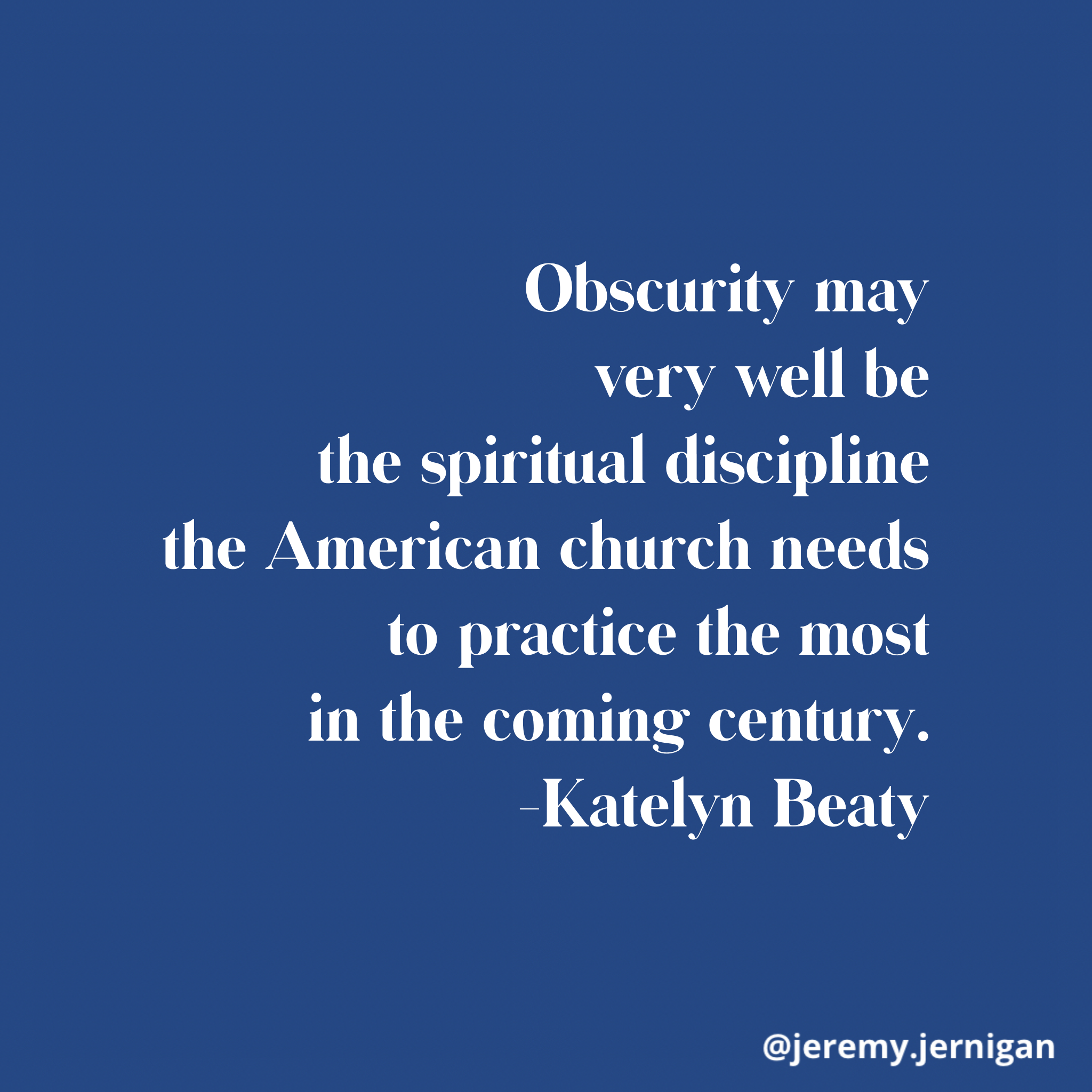Celebrities for Jesus

I heard much fanfare about Katelyn Beaty’s recent book—Celebrities for Jesus—and was excited to dive in for myself. It is even better than I anticipated.
Beaty has worked as a journalist for Christianity Today as well as in the Christian publishing world and has a unique vantage point on how Christian celebrities operate. In many ways, this book would be great as a “deconstruction” resource. She observes (as do many Christians in the deconstructing community), that “Institutions are too often platforms for self-expression rather than arenas of deep moral formation.” This is why a book like this is timely and practically helpful. She strikes a fair balance of criticism of modern Christianity and its leaders coupled with hope for how things can be better.
“…The very nature of celebrity, especially in a digital era, is that it hides its power behind the illusion of intimacy.” With fame comes the sense that we know a person, even when this is relationally not true. This is of particular concern when the celebrity we are exploring is in the role of a pastor. A role that is built on intimacy and works best when a relationship is present. This type of celebrity happens in the church whenever an illusion of intimacy is created with a leader.
“To be famous is to be known—or at least known of—by far more people than you can ever know. Fame almost always includes a differential of power.” Again, this is of particular concern when the context is a pastor in a church. Differentials of power have a way of changing a person and creating situations where abuse is more likely to happen. Indeed, Beaty’s definition of celebrity as “social power without proximity” makes this clear. We would do well do consider whether or not, at least in our models of church, we should expect proximity before granting social power.
Some notoriety may indeed be inevitable, even for Christian leaders. But “the right kind of fame arises from a life well lived, not a brand well cultivated.” Thankfully, despite the numerous bad examples, we still retain other examples of Christian leaders who stewarded their influence and notoriety well. But you cannot help but emerge from reading this book with caution in your spirit about any spiritual role that brings elements of celebrity with it.
Thankfully, she offers a simple way forward for all of us. “Obscurity may very well be the spiritual discipline the American church needs to practice the most in the coming century.” To that I say Amen. It’s a good thing that despite what often shows up on social media or in our headlines today, “Ordinary people are the primary way God has worked in and through the world over the centuries.”
CLICK HERE to get a digital copy of the book or CLICK HERE for an audio version.
Obscurity may very well be the spiritual discipline the American church needs to practice the most in the coming century. @KatelynBeaty Share on X

(Disclaimer: As a Faithlife Partner, I may earn commissions from qualifying purchases from Logos.com at no cost to you. Your reading can help support my writing; thanks!)
Do You Want to Read the Bible Without Falling Behind?
Sign up your email and I’ll send you a PDF to download and use my custom-made reading plan system. There’s no way to fall behind on this system and every day will be different no matter how long you use it!
I’ll send future content directly to your inbox AND you can dive into the Bible like never before.





